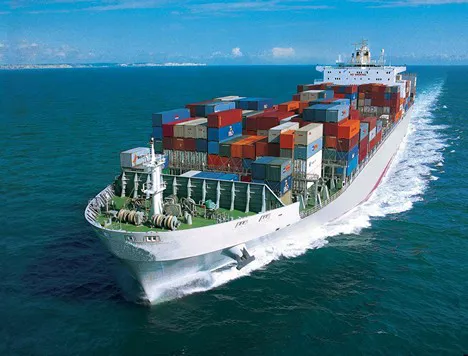It is a difficult moment for fruit exports towards Egypt due to the new currency regulations that have made transactions complicated. FreshPlaza has talked about it with Riccardo Martini, CEO at DCS Tramaco, a logistic company based in Ravenna specializing in refrigerated trade with the North-African country.
"Ever since March 1st 2022, the Central Bank of Egypt has been issuing increasingly restrictive regulations that are making it extremely difficult to export fruit and other goods to the country. Imports that entail payments in Euros or USD must now obtain a Letter of Credit by the importer.
"In order to counter the exchange black market, which has always been thriving in Egypt, the local authorities have also envisaged that the currency necessary to open a Letter of Credit must come exclusively from foreign remittances when it comes to exports or from negotiations of Egyptian Lira, of course at the official exchange rate. Finally, once the necessary currency availability has been ascertained, the bank of the importer must request the authorization of the Central Bank."
 Riccardo Martini at Macfrut 2022
Riccardo Martini at Macfrut 2022
"These steps can require weeks and it has become very difficult to plan shipments for Italian producers, who used to easily export every week. This is having a deep effect on the leading seaborne market, i.e. that of apples, as volumes have halved in the last three months while warehouses needed to be emptied to make room for the new harvest."
FreshPlaza (FP): What do you think are the reasons for this?
Riccardo Martini (RM): Egypt has been suffering for years from an insufficiency of hard currency. Just think about the devaluation of 2015, when the Egyptian Lira was depreciated by 52% in one night. I believe the pandemic and the war in Ukraine have made even more evident the need of the Central Bank of Egypt to reduce the purchase of foreign currency as much as possible.
FP: How have these events affected the Egyptian monetary strategy?
RM: I am no financial expert but, talking to my entrepreneur friends in Egypt, I have understood how the pandemic has hit tourism hard, which is an essential inflow of foreign currency for Egypt, while the conflict between Russia and Ukraine has jeopardized the supplies of wheat and other commodities which used to come mainly from these two countries. Having to find alternative foreign suppliers at higher prices, the need to have foreign currency reserves has definitely increased and the Egyptian Government is prioritizing those products that are essential for its people, and rightly so, to avoid an economic crisis that would have unforeseeable effects. Medicines, vaccines, chemical products and raw material necessary for the Egyptian industrial production have in fact been exempted from the obligation of the Letter of Credit. As for food, wheat, flour, tea, meat, poultry, oil, powdered milk, beans, lentils and butter are exempt, i.e. the products at the base of the local diet and of which Egypt does not produce enough quantities.

FP: These provisions should anyway favor fresh produce exports and guarantee a higher currency revenue.
RM: It is not that easy when maritime transport is involved, as it has its own dynamic. We are seeing it now that the import of Egyptian grapes destined mainly to Northern Europe has started. The season is short yet intense, with thousands of reefer containers shipped per week. Companies have been forced to considerably increase freight, as the equipment balance given by the imported reefer traffic (see apples from Italy and Poland) changed. Moving empty containers has a cost and the increase in freight has an effect on the costs faced by Egyptian exporters, who already have to deal with increases in the price of fertilizers, packaging and electricity. All this in a depressed European market due to the drop in consumption caused by the fear of inflation and the increase in costs for families.
FP: So what should we expect when it comes to sea exports of summer fruit in the coming months?
RM: The difficulties we have discussed will probably affect sea exports of summer fruit too. The high perishability made Egypt one of the favorite destination thanks to the short transit times. Italian grapes will not be affected, as they are exported to other countries.
For further information:![]()
DCS Tramaco
Via Magazzini Anteriori, 63 - Ravenna
+39 0544 426711
tramaco@tramaco.net
www.tramaco.net
